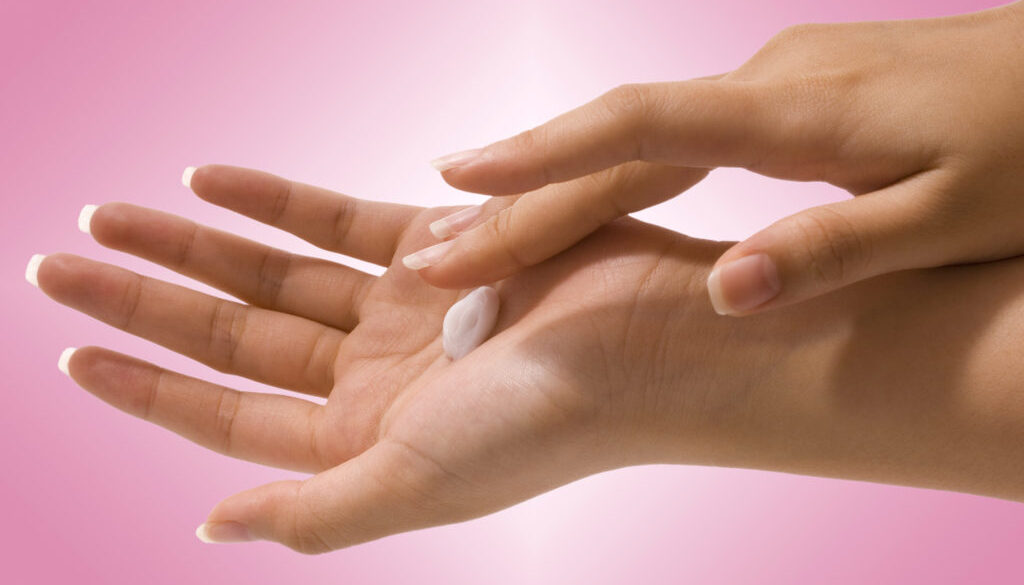Winterize Your Skin
By Aparna Mele, MD

Winter can be harsh and detrimental to your skin, making it dry, itchy, and irritated. Cold, blustery conditions outside can leave your skin feeling raw, while indoor heat from a roaring fire or hot shower zaps moisture from the air and strips your skin of its natural oils.
There are however many simple ways to combat the causes of dry winter skin and help keep your skin feeling moist and supple all season long, including some easy changes to your everyday routine. For example, after taking a not-quite-so-hot shower, “blot skin dry and apply a thick moisturizer within a few minutes after bathing to seal the water into the skin,” says Linda Stein Gold, MD, a dermatologist at Henry Ford Hospital in West Bloomfield, Michigan.
Here are some tips to keep skin. to reduce chapping, redness, itching, and keep skin looking youthful and smooth this winter season.
- Humidify
Heating systems dry out the air, so consider installing a humidifier in your home, particularly in your bedroom, to put moisture back into the dry seasonal air and help keep your skin hydrated.
- Wash in Lukewarm Water
. It may be tempting to take a long, steamy shower, but your skin will be much better-with a 5-10min lukewarm shower or bath), as the AAD suggests, to avoid stripping as many oils away from the skin You should also avoid using excessively hot water when washing your hands — if the water causes your skin to turn red, it’s too hot. Washing your hands in cooler water appears to be as effective at removing germs as warm water and is less irritating to skin, according to the Centers for Disease Control and Prevention (CDC). And if you’re using a restroom air hand-dryer, use it just until your hands are damp rather than perfectly dry.
- Moisturize Promptly and Frequently
Maintain healthy skin by moisturizing after washing up. Your skin not only needs more moisture, but moisture right after you wash. Applying moisture to damp skin helps seal that dampness into the skin. Keep a bottle near the bathtub, shower stall, and at every sink and use liberally every time you wash.
4. Modify Your Skin-Care Regimen for the Season
Some over-the-counter moisturizers have petroleum-based ingredients that can actually further dry out your skin in the winter months. Be sure to choose a formulation that has natural, nourishing ingredients. Go for an oil-based rather than a water-based solution, as it’s more likely to help your skin retain moisture in the winter. Choose cream-based cleansers, and apply toners and astringents sparingly, if at all. Many astringents contain alcohol, which can further dry your skin. When your skin is dry and itchy, the American Academy of Dermatology (AAD) recommends you stop using products that contain alcohol and fragrances in order to help skin retain its natural oils. At night, use a richer moisturizer on your face. Don’t forget your lips. Applying a moisturizing balm (such as petroleum jelly or another ointment) can help heal dry, cracked lips and keep them from getting chapped.
- Change Your Cleanser
Cleansers can be extremely drying to the skin. If you’re used to using options that contain glycolic or salicylic acid, rotate with a more hydrating version that contains moisturizing ingredients. The wrong soap can worsen itchy, dry skin with irritating ingredients and fragrances. Instead, wash with a fragrance-free, moisturizing cleanser or gel ( look for products specifically labeled “fragrance-free,” because “unscented” products may actually contain fragrances). After cleansing, don’t leave the skin naked for more than 30 seconds, as this can dehydrate it, leading to increased dryness. Apply a hydrating toner and moisturizer to seal in moisture.
- Protect With Sunscreen
On bright winter days, snow reflects the sun’s rays — up to 80 percent, according to the Skin Cancer Foundation — increasing your risk of exposure. That means whether you’re out on the slopes, playing in the snow, or just walking through a parking lot on an errand run, it’s just as important to be applying sunscreen in the harsh winter weather, as it is in the summer. Don’t be fooled by darker, dreary days in winter, either. The sun’s harmful UV rays can permeate clouds and still cause damage. Before you go outside, apply a moisturizing, broad-spectrum safe sunscreen like zinc oxide or titanium dioxide with an SPF of 15 or higher to all exposed areas of your body.
- Hydrate From the Inside Out
We tend to drink less water in the winter because we turn to hot drinks like cocoa and tea, but don’t forget that your skin needs hydration from the inside, out. Eating foods high in water content can also help hydrate your skin from the inside out. Try watermelon, cantaloupe, apples, oranges, kiwi, and watery veggies like celery, tomatoes, cucumbers, zucchini, and carrots. Make sure you’re getting enough vitamin C and zinc to support the healthy production of collagen and elastin. Also consume more fatty fish and flaxseed to give your skin the building blocks it needs to appear supple and smooth.
- Overnight Moisturize
Dryer areas like hands, feet, elbows, and knees have thin skin and tend to lose moisture faster than other areas on the body. Consider slathering on a deep moisturizing balm at night, then wear cotton gloves and socks to seal in the moisture until morning.
- Exfoliate
We often forget to help the skin slough off dead cells in the winter, particularly on our hands. Yet moisture can’t get in if the dead cells are too plentiful. Find an exfoliating mask and use it on your face and your hands, as well as gently on your lips, then follow immediately with moisture to truly see a smoother difference. Exfoliating body washes are also helpful in the winter months.
- Homemade Masks
Homemade hydrating masks can provide needed moisture in the winter months. Use natural moisturizing ingredients like honey, avocado, yogurt, olive and jojoba oils, almond oil, bananas, and aloe. Mix what you like together to create a cream or paste and leave on skin for 10-30 minutes for lasting hydration.
- Wear Comfortable, Nonirritating Clothing
Many cold-weather fabrics can aggravate dry winter skin and make it irritated and itchy. Separate wool and rough clothing from directly touching your skin. Wear light layers made from soft, breathable materials directly against your skin, and then pull on your heavier, warmer sweaters on top. Be sure to protect your hands from cold winter air with gloves or mittens, remembering to choose a pair that won’t irritate your skin. If you prefer wool gloves, put on cotton or silk glove liners first.



